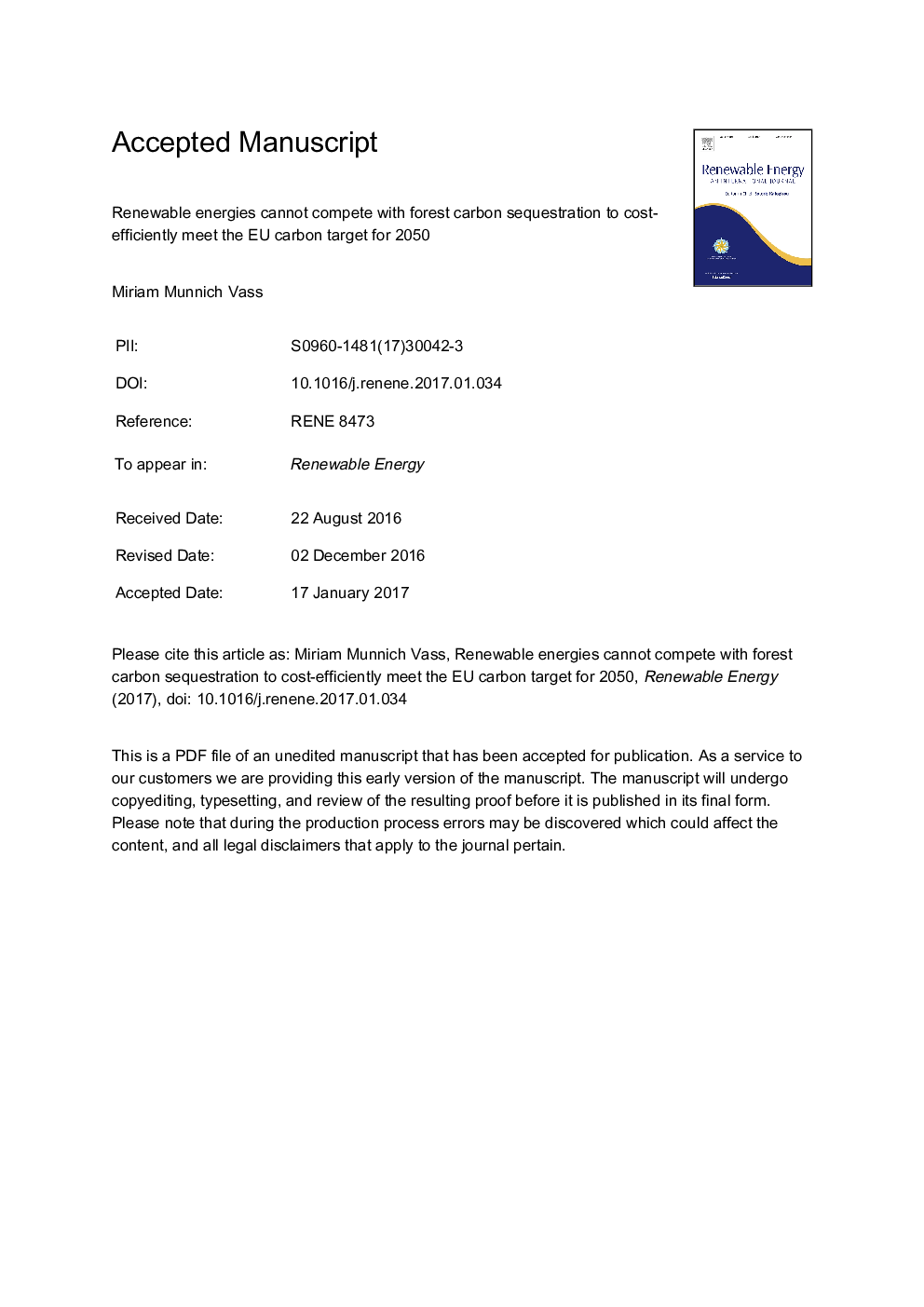| Article ID | Journal | Published Year | Pages | File Type |
|---|---|---|---|---|
| 4926705 | Renewable Energy | 2017 | 51 Pages |
Abstract
Renewable energies have great potential to contribute to CO2 emissions reductions by substituting for fossil fuels. This study examines whether renewable energies with learning-by-doing technical change can compete with forest carbon sequestration to cost-efficiently achieve the EU carbon target for 2050. Cost-efficient abatement solutions are obtained using a dynamic optimisation model that accounts for three kinds of mitigation options: renewable energies and abatement in the forest and fossil fuel sectors. The results show a net present cost of reaching the target of approximately 225 billion Euros and a carbon price of 306 Euro/ton CO2 in 2050. Furthermore, the stock of renewables in 2050 can deliver almost twice as much as the current electricity production from renewables, which implies a contribution of 8.2% to meeting the emissions target. However, the average cost per unit emissions reduction is more than twice as high for renewables as for forest carbon sequestration. Hence, the results indicate that renewables are unable to compete with forest carbon sequestration unless they receive continued government support.
Keywords
Related Topics
Physical Sciences and Engineering
Energy
Renewable Energy, Sustainability and the Environment
Authors
Miriam Münnich Vass,
